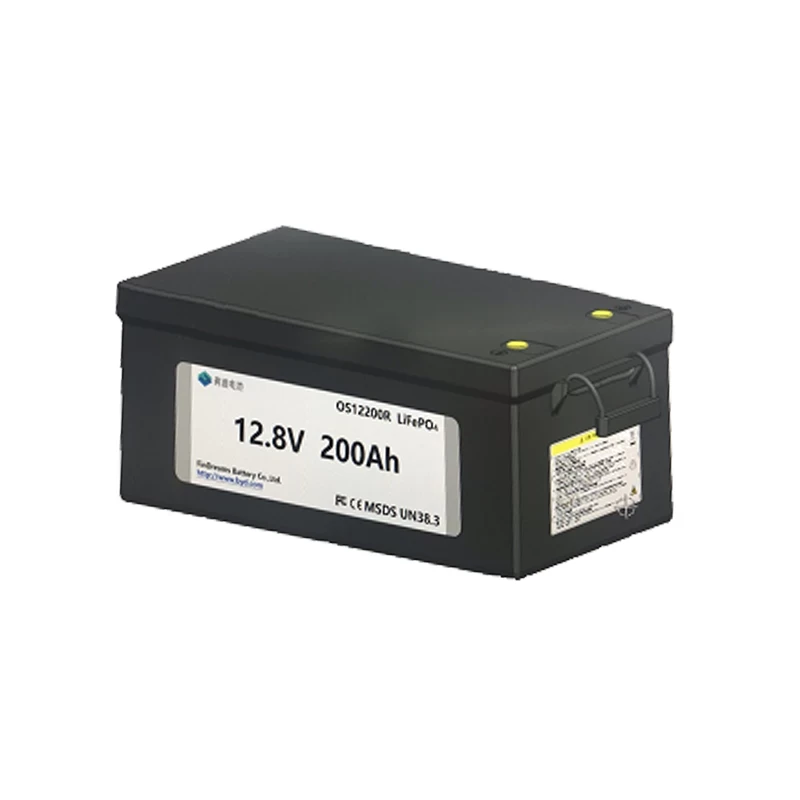The lifespan of a car battery is usually around 3 to 5 years under normal conditions. However, the actual lifespan can be affected by a number of factors, and the real question is, how long will your battery last? Well, it depends on a lot of factors, especially these three:
How hot does it get where you live?
What kind of car are you driving?
What are your driving habits?
Even the way a battery was treated before you bought it can affect how long it lasts in your car.
If you own a car long enough, you'll buy a car battery. And it can be stressful. You're about to go to work, go home, go meet a friend, and your car battery dies. Your whole world stops until you buy a new one—and sometimes it's an expense you weren't expecting. Now, your battery purchase is an investment to avoid the stress from a dead battery again.
So, it's natural to ask: How long will your car battery last?

How Long Do Car Batteries Last?
Saying three to five years can be misleading.
Is that three years since it was manufactured or three years after it was installed? On top of that, two years is an awfully wide range for an average. Why can’t it be just four?
Jeff Barron, Interstate Batteries auto electronics expert, doesn’t like to put a number to a car battery’s average lifespan.
As the Interstate lab manager and battery expert to car professionals, Barron measures battery life every day. In his experience, battery life can vary wildly if you change just one variable.
The car, the climate, the driver, even where you bought the battery — it all makes a major difference in how long you can expect your car battery to last. In fact, it could be “dead” before it’s installed in your car, or it could last 10 years or longer.
So how long do car batteries last on average?
Well, it depends on your circumstances.
How hot does it get where you live?
If you face some brutally hot summers, leaving your car in the sun all day long isn’t good — for a lot of reasons. The car battery is one of them.
Car batteries are most efficient at 80 F. Plenty of them die in winter, but brutal summers leave permanent damage on a battery. That damage builds up. Eventually, the battery can’t hold enough power to start a car, no matter how much you recharge it.
Now, an Arizonian who keeps their car in a garage may get more years out of their battery than a Wisconsinite who leaves their car in the summer heat.
Keep your car battery in the shade to help it last longer.
What kind of car do you drive?
Power-hungry Mom vans like the Honda Odyssey and daily commuters like the Toyota Camry go through batteries at different rates.
Modern driving means keyless entry, Bluetooth connections and precise gas-saving engines calculating transmission changes and fuel usage — and all that technology needs power. The alternator gives electricity while you’re driving, but the car battery runs things when you’re not.
As a matter of fact, your car is never truly off. The engine may not be running, but the onboard computer is. The power control module (PCM) and a dozen memory-storage modules throughout the vehicle need to draw power. This is called key-off drain or parasitic drain. It may be one or two amps, but the battery needs to recharge from it.
The alternator does recharge the battery, but it’s also busy powering everything else. Even if you’re hitting highway speeds, the onboard DVD player, Bluetooth sound system, USB charging ports and everything else is drawing amperage away from what the alternator would put to recharging the car battery.
Go easy with your devices, and your battery will go farther.
What are your driving habits?
Yes, the way you drive can absolutely affect your car battery. Change a few habits, and you might not have to change your battery as often.
Taking only short, five-minute drives can wear your car battery down.
Every time you start the engine, you pull a big dose of power from the battery in an instant. Then the alternator is supposed to recharge the battery. However, if you park after driving for just a few minutes, the alternator barely had time to refill the electricity you used. Remember, you need time to recharge batteries.
You also need speed: The engine needs to be running at 1,000 rpm for the alternator to start charging the battery at all. To refresh the battery a little, you need 10-20 minutes of highway speeds or a couple hours to recharge it significantly.
Recharging the battery regularly helps it last longer.
How was the battery kept before you installed it?
Any battery on the shelf older than six months might start your car but it won’t last as long under the hood. Just like milk, fruit or an open bottle of soda, car batteries will go bad by losing charge if they’re left on the shelf for too long. Car batteries on the shelf lose about 5% of their charge every month, and they get permanent damage if they ever drop to 75%.
Batteries need electricity. From the day they’re made, car batteries start to degrade — until they get recharged. Boosting a battery turns back the clock, giving you a longer battery lifespan overall.
If you’re asking about a battery that was kept fresh, it’ll last longer.
How Long Does a Car Battery Last Without Driving?
Three or four weeks of not driving could kill your car battery. Less than that if your car has a lot of onboard technology, including keyless entry or remote starting. Even less if your battery is already weak.
Your car is always drawing a small amount of power from the battery. Its onboard computers stay on to store engine data. Its antennas listen for commands from the key fob. Its security system stays vigilant.
If you’re driving every other day, that small drain is harmless.
If you leave your car for a week or two, it’s not a small drain anymore.
If your battery was already weak and you don’t drive the car for a month, you're almost certainly going to need to jump your car.
How Long Does a Car Battery Last on the Shelf?
Less than six months might be the limit that a car battery can last on a shelf and still start your car. Even if batteries were left on the shelf for just five months, they could already be dead.
In a single month, a car battery could lose 5% of its charge sitting on a shelf. If it loses 75% or more, the battery’s chemistry starts to corrode in a process called sulfation. Essentially, a battery goes bad if it’s not recharged regularly — and the battery will go bad faster if it’s sitting in hot weather.
A new or 6-month-old battery might start your car on a warm day, but it also might have degraded so far that it couldn’t pass a battery test. That means it’s fragile. It’ll start the engine when it’s easy. But if temperatures drop, if the battery doesn’t get regular recharging, if the battery gets shaken enough, it’ll die. A fresh, healthy car battery can handle some vibrations, a cold winter and going without a recharge for even a week.
A fragile one will buckle if it’s put to the test.
Yes, a Car Battery Can Last 10 Years. Sometimes, Much Longer.
Car batteries can last much, much longer than three to five years. In fact, Interstate’s battery guru Jeff Barron said he hears “quite often” about car batteries lasting 10 years or longer. When a car battery lasts 10 years, it means it never took any significant, permanent damage from either sitting in high temperatures or sitting for a long time with a low charge.
There are two keys to long battery life:
Staying fully charged
Staying protected from temperature extremes in winter and summer
This is no guarantee, but if you park in a garage and hook up a trickle charger every so often, you may get longer-than-average life from your battery. Then again, you may do everything right — and the car battery you bought might have sat on the shelf too long for it to last beyond the average.
Tips to extend the life of your car battery:
Regular maintenance and inspection:
Check the health and charge status of the battery every few months, and clean the battery terminals in time.
Avoid deep discharge:
Avoid letting the battery discharge completely, and timely charging can extend the battery life.
Maintain proper storage conditions:
When the vehicle is not used for a long time, consider using a battery maintainer to maintain the battery's charge status.
Proper use of vehicle electrical equipment:
Avoid excessive use of electrical equipment when the engine is turned off to reduce the additional load on the battery.
Through these measures, the service life of the car battery can be effectively extended, ensuring that the vehicle can always start and run reliably under various conditions.
Purchase a good battery:
BYD lithium iron phosphate battery(lifepo4 battery)



For more information, please contact us at: ciclibattery.com


